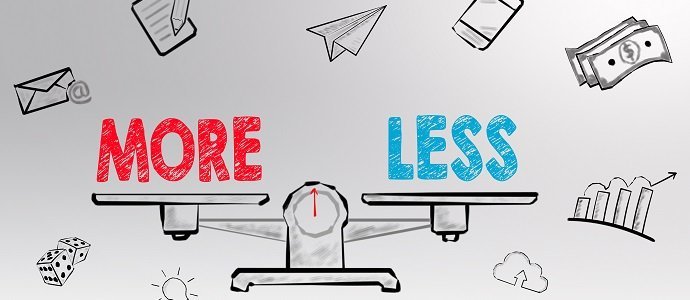
Minimalism: the Value of Living With Less
Today’s society seems to measure success on one’s accumulation of possessions, but more and more, people are beginning to embrace the freedom that comes with owning less – developing a more sustainable lifestyle that provides endless benefits.
While part of this growing trend toward minimalism can be attributed to the ongoing global economic recession, many people are prompted to downsize due to ecological and environmental concerns. For even more, this yearning for simplicity is about cultivating an appreciation for a life with less “stuff.”
“We bought into the media notion that money buys happiness,” said Duane Elgin, who wrote a book about the benefits of minimalism and simplicity. “We really, really tried that for couple of generations, and it didn’t work.”
On average, Australian households annually spend more than $1,226 on things that will never be used – and individually, each of us produces more than half a ton of waste each year. Not only is this unhealthy on a personal level, but it’s damaging our environment – leading more young people to search for ways to consume less.
Renting or buying smaller homes, using renewable energy sources, eating seasonally and cooking at home, and choosing to take public transportation or car-sharing networks instead of purchasing a personal vehicle are some of the ways people are starting to shift to a more sustainable, minimalist lifestyle.
“I always packed as lightly as possible, and found it exhilarating to get by with just a small carry-on bag,” said Francine Jay, an author and blogger who has been living minimally for more than a decade. “I thought, wow, if it feels this great to travel lightly, how amazing would it be to live this way? I wanted to have that same feeling of freedom in my everyday life, so I decided to get rid of all my excess possessions and live with just the essentials. I wanted to spend my time and energy on experiences, rather than things.”
While Jay admits her shift to minimalism wasn’t initially for financial or environmental reasons, she has seen benefits in both areas, thanks to her simplistic lifestyle. After living a somewhat nomadic life for several years, Jay and her husband have settled into a home with a new baby – but are still committed to their choice of living minimally.
“I never think of minimalism as deprivation,” Jay said. “Rather, it’s eliminating the excess – unused items, unnecessary purchases, unfulfilling tasks – from your life. Well, I may have fewer possessions, but I have more space. I may have fewer commitments, but I have more time. Minimalism is making room for what matters most.”
Living within your means and using only what is necessary certainly leads to a more sustainable life, but people considering making some changes need to ask themselves a few questions, according to Elgin. Understanding wants versus needs is key for anyone thinking about pursuing minimalism – and applying it broadly, to your entire outlook on life.
“What do you care about? What do you value?” Elgin said. “It’s important for people to realize it isn’t simple the amount of stuff we consume. It’s about our families, our work, our connection with the larger world, our spiritual dimension. It’s about how we touch the whole world. It’s a way of life.”













This is a very amazing.